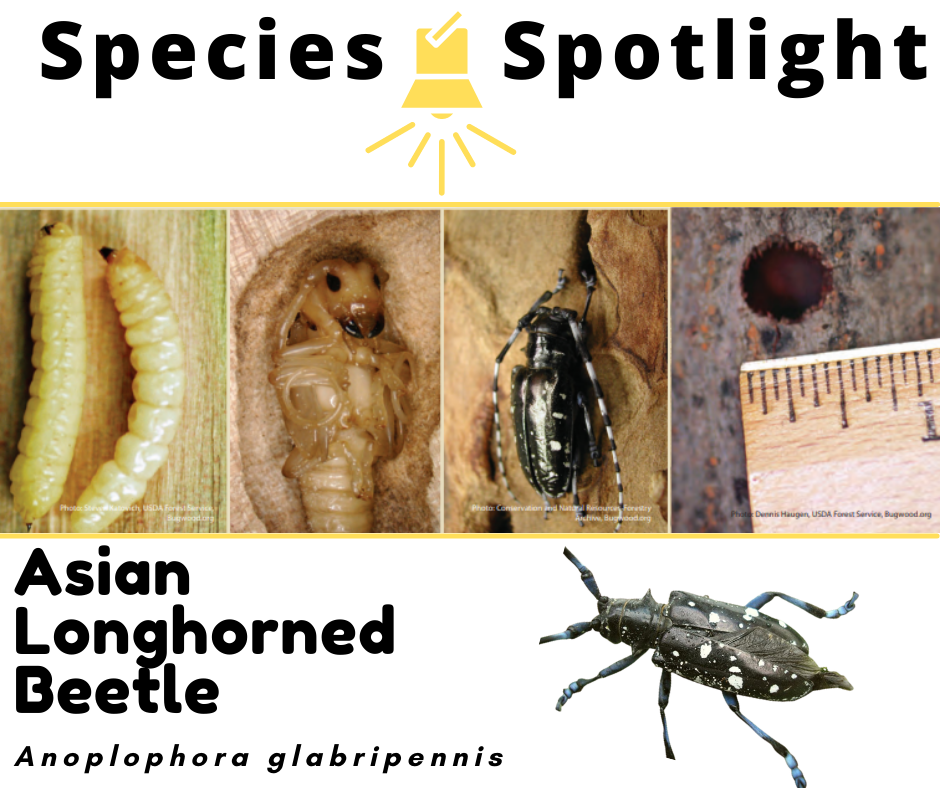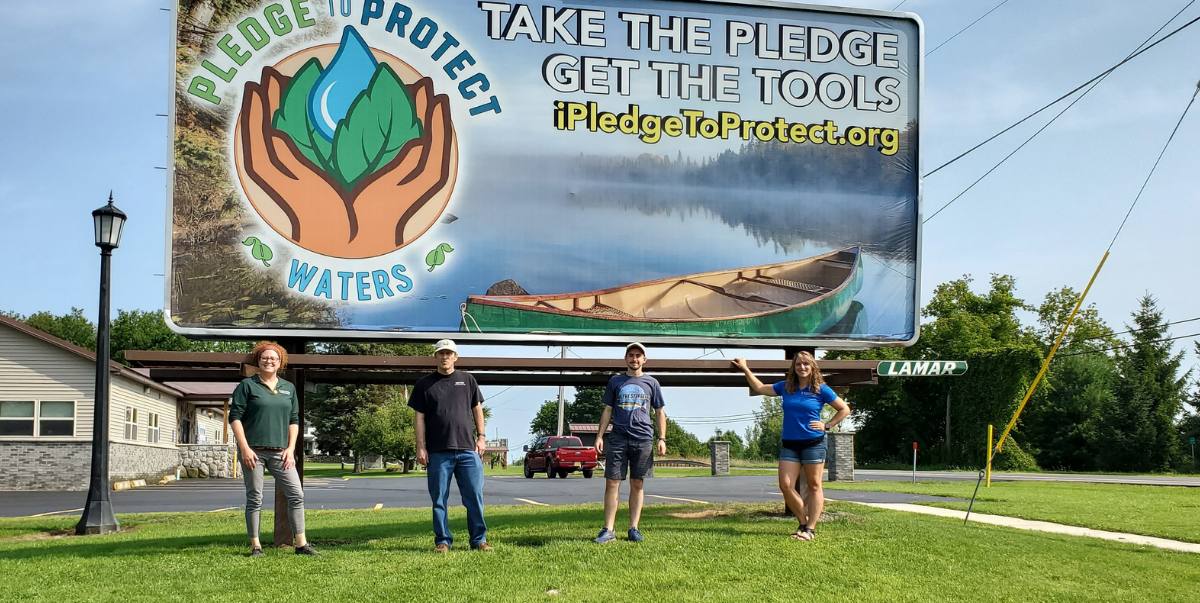Looking for an impactful New Year’s resolution? Join our volunteer network and take action to protect vital ecosystems in your region!
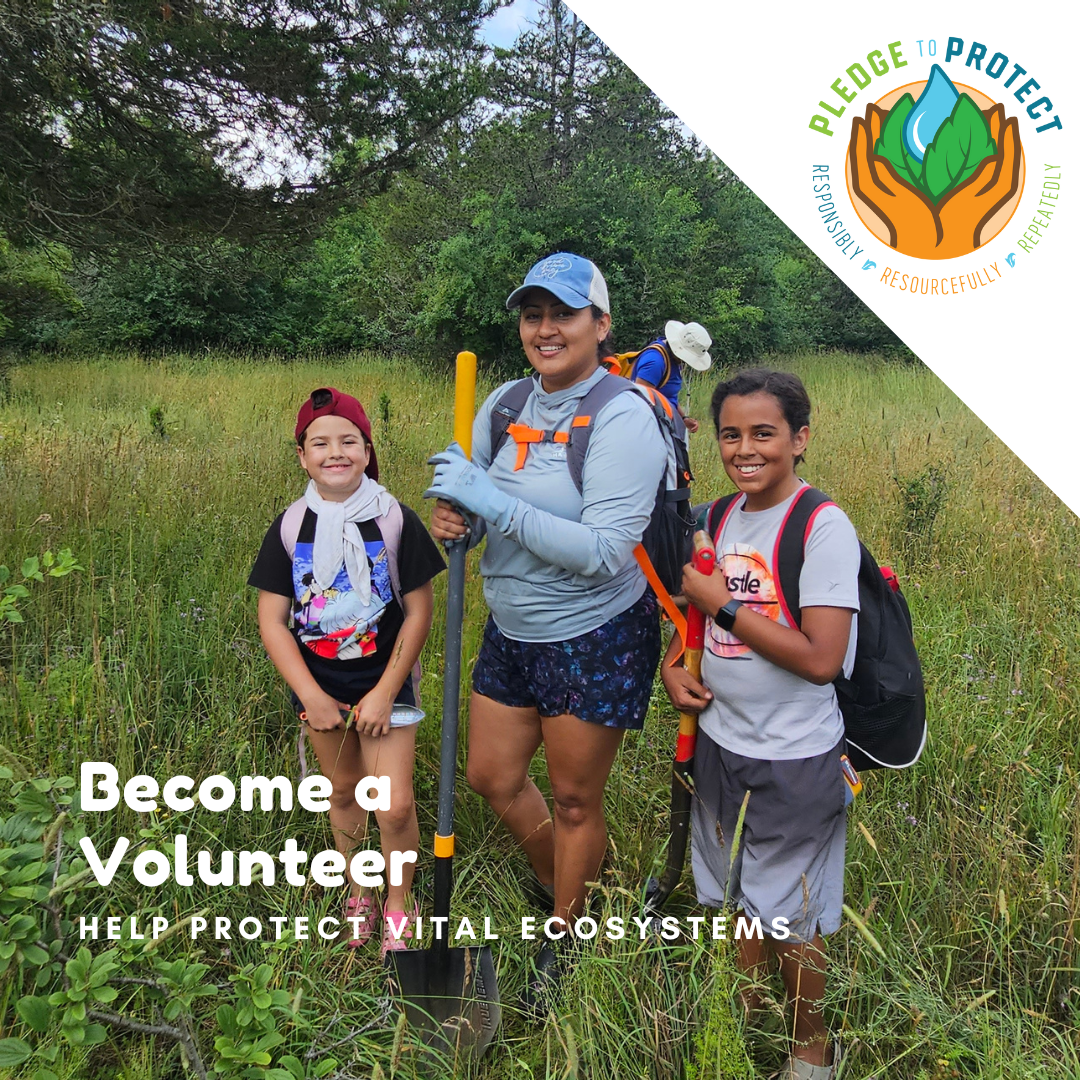
Protector’s Activity: Become a Volunteer
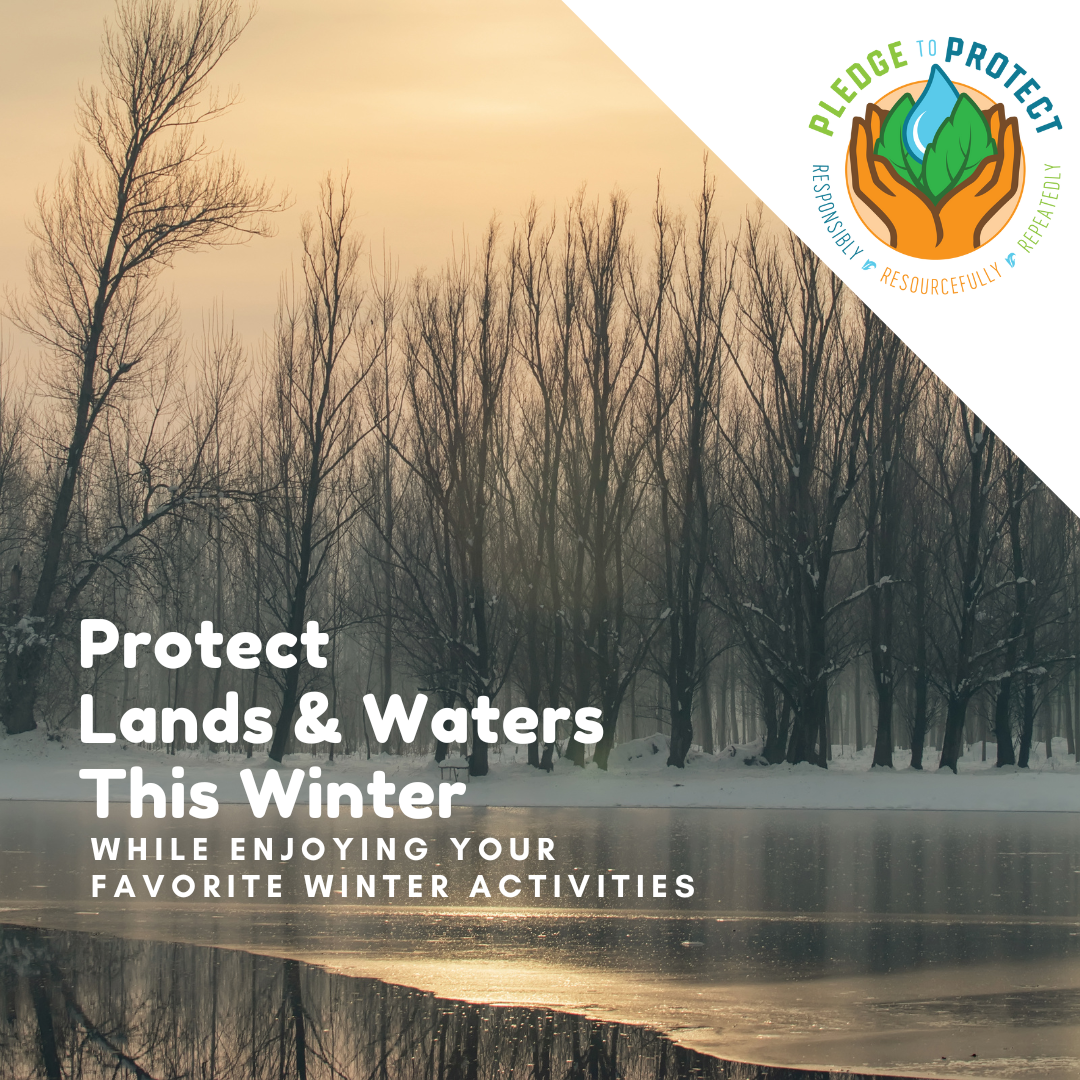
Protector’s Activity: Protect Lands and Waters This Winter
Winter is here and there are many fun activities that you can enjoy this season like snowshoeing, cross-country skiing, ice fishing, and much more! While you’re spending time outdoors this winter there are some simple actions you can take to protect your favorite hiking trails, forests, and waterways from invasive species.
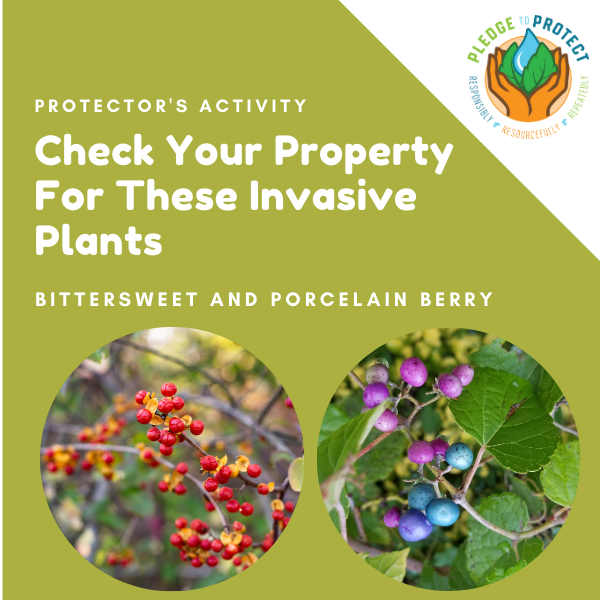
Protector’s Activity: Check Your Property for Invasive Plants
This fall and winter keep an eye out for bittersweet and porcelain berry which are easily identified by their distinctive berries that appear this time of year. These invasive woody vines grow over understory vegetation and strangle trees. Check out this Protector’s blog to learn to recognize these invasive plants and steps you can take now to get a head start on controlling them before the next growing season.
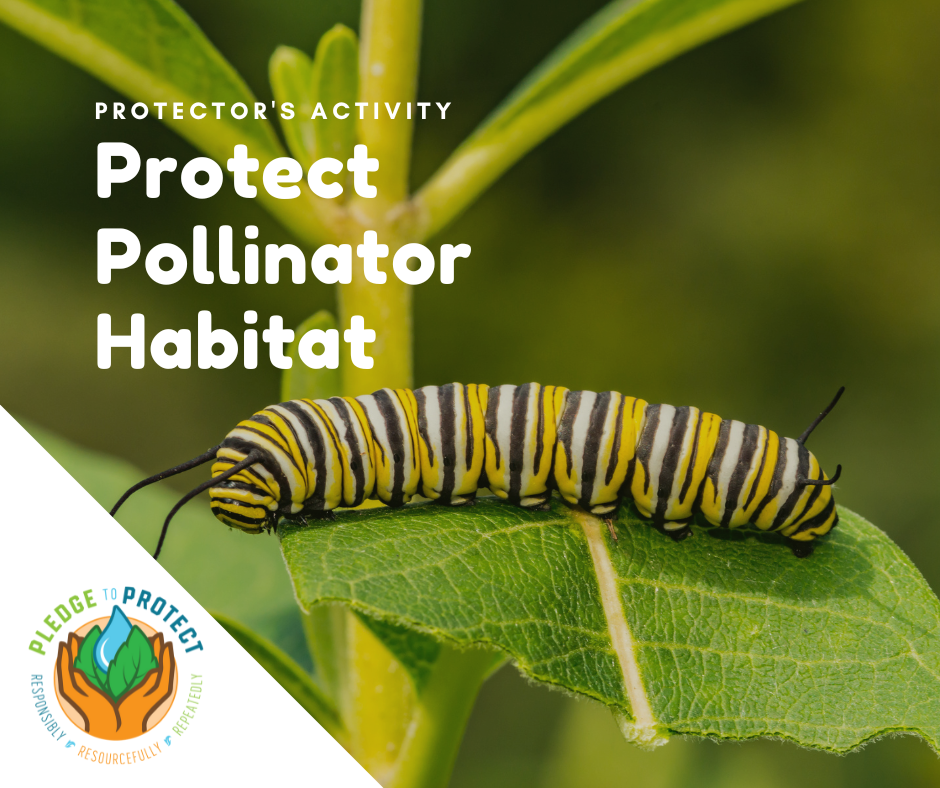
Protect Pollinator Habitat
Specialized relationships between plants and insects are vital to the lifecycle of many pollinators. Invasive plants can easily overtake pollinator habitats. You can help by planting pollinator host plants and by removing invasive plants on your property. Learn more in this Protector’s Blog!
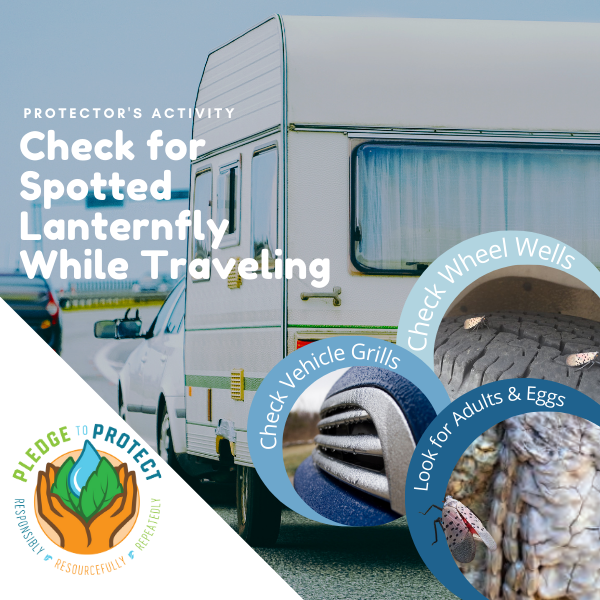
Protector’s Activity: Check for SLF While Traveling
Attention travelers, spotted lanternfly (SLF) can easily hitchhike on your vehicles. Be sure to check the grill and wheel wells of your vehicle for SLF adults and eggs while doing end of season traveling.
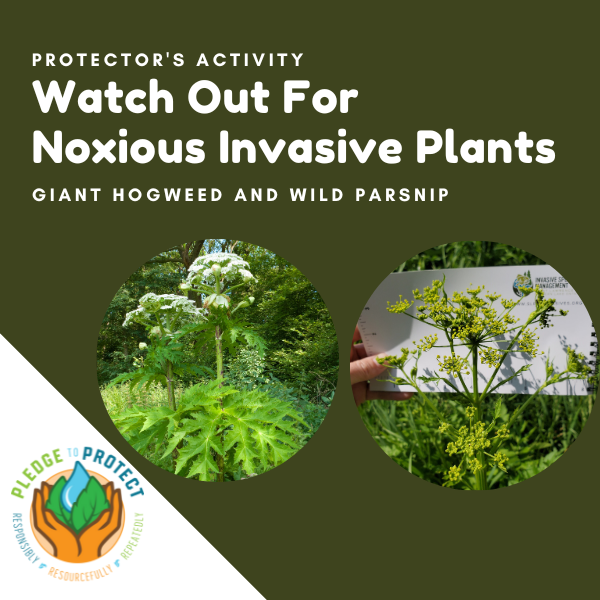
Protector’s Activity: Watch Out For Noxious Invasive Plants
While you’re enjoying the outdoors in your own backyard or on your favorite trail, keep an eye out for noxious invasive plants that could really hinder your outdoor experience!
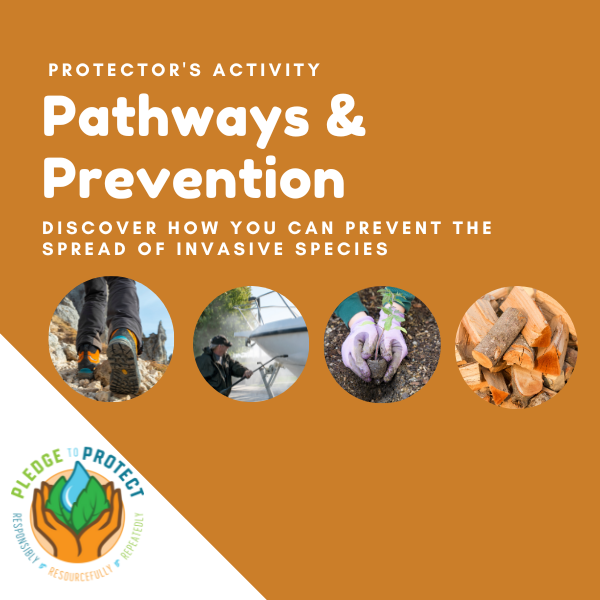
Protector’s Activity: Prevent the Spread of Invasive Species
Did you know that you can spread invasive species by boating, taking a hike, gardening, moving firewood, and many other activities you may enjoy? Learn about invasive species introduction pathways and actions you can take to prevent their spread.
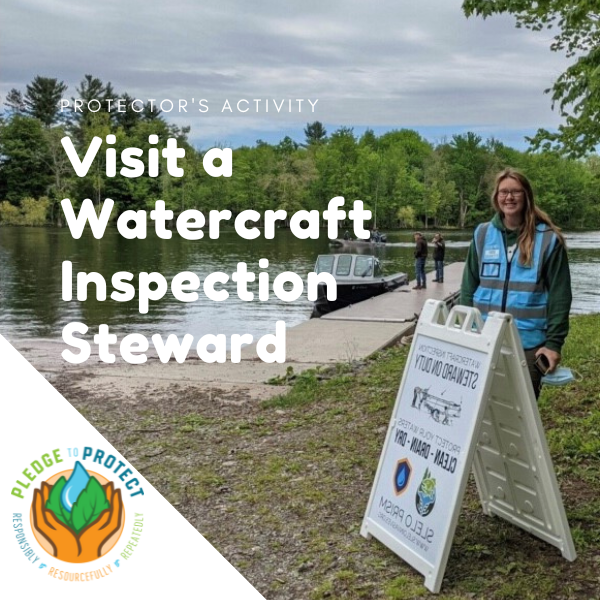
Protector’s Activity: Visit a Watercraft Inspection Steward
Help stop the spread of aquatic invasive species by visiting a watercraft inspection steward this summer!
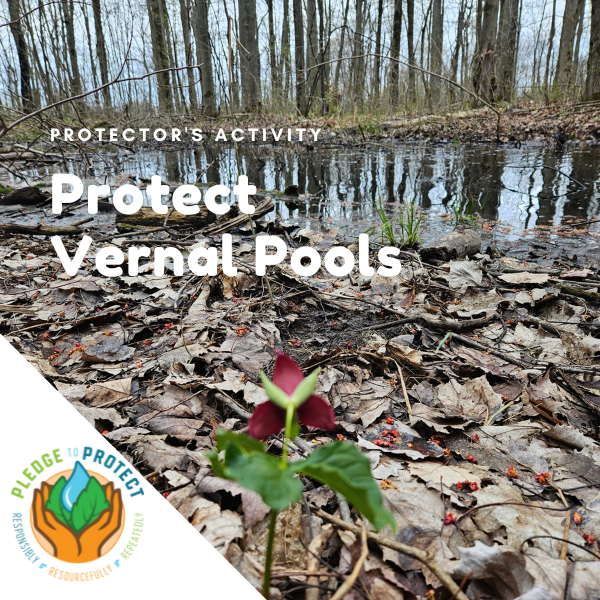
Protector’s Activity: Protect Vernal Pools
Vernal pools provide essential habitats for the lifecycle of amphibians and provide important food sources for wildlife. Invasive plants can lower ground table water levels making conditions too dry for vernal pools to develop altering these sensitive habitats and making them unsuitable for dependant wildlife.
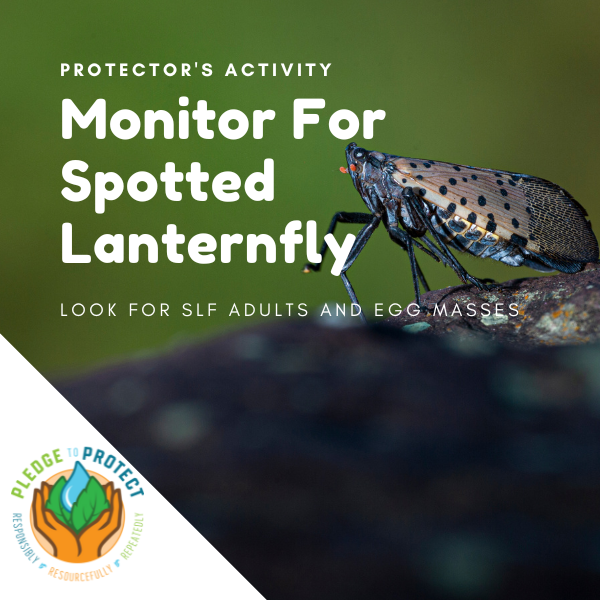
Protector’s Activity: Monitor for Spotted Lanternfly
Spotted lanternfly lay their eggs in the fall. Keep an eye out for adults until cold weather and for egg masses now through the winter. Learn what to look for and what to do if you find SLF in this Protector’s blog.

